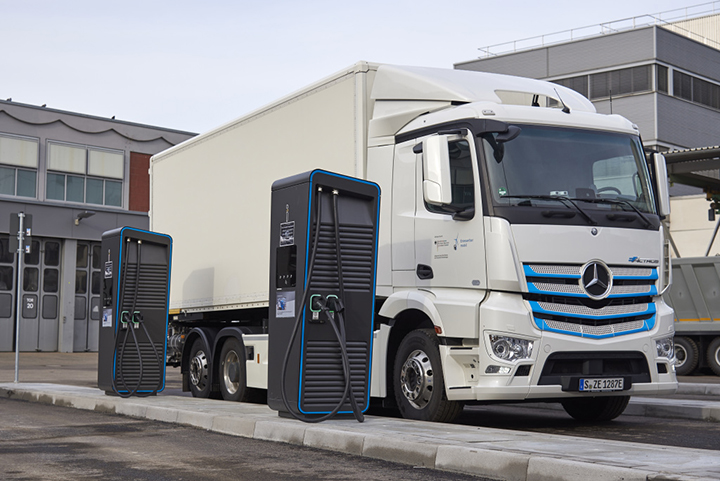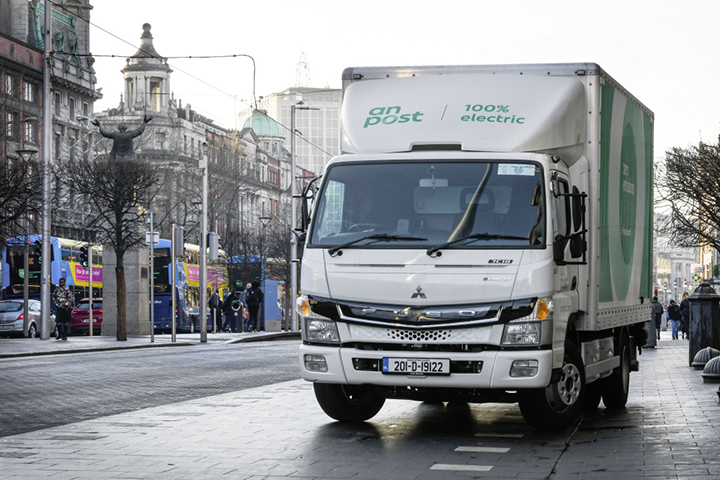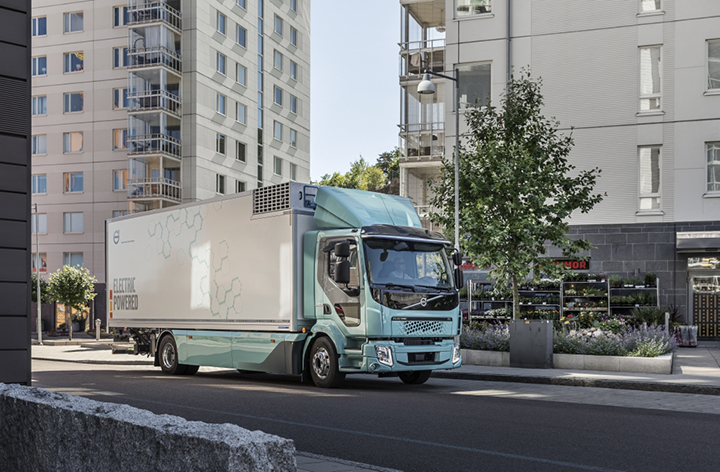
Volvo Group and Daimler Truck AG will mass-produce hydrogen fuel cell systems for heavy-duty vehicles.
Personal transportation is moving towards electrification, while there’s isn’t much talk on where heavy-duty vehicles will be heading towards. Now though, Volvo Group and Daimler Truck AG will be commercializing hydrogen fuel cell systems for heavy-duty vehicles. Recently, Toyota and Hino have joined to do the same.
Sharing the Green Deal vision of sustainable transport and a carbon-neutral Europe by 2050, Daimler Truck AG and the Volvo Group, have signed a preliminary non-binding agreement to establish a new joint venture. The intention is to develop, produce and commercialize fuel cell systems for heavy-duty vehicle applications and other use cases.
Daimler will consolidate all its current fuel cell activities in the joint venture. While Volvo Group will acquire 50% in the joint venture for the sum of approximately EUR 0.6 billion on a cash and debt-free basis.

For trucks to cope with heavy loads and long distances, fuel cells are one important answer and technology where Daimler has built up significant expertise through its Mercedes-Benz fuel cell unit over the last two decades. This joint initiative with the Volvo Group is a milestone in bringing fuel cell-powered trucks and buses onto our roads,
Martin Daum, Chairman of the Board of Management Daimler Truck AG and Member of the Board of Management of Daimler AG.
Martin Lundstedt, Volvo Group President and CEO says that using hydrogen as a carrier of green electricity to power electric trucks in long-haul operations is one important part of the puzzle and a complement to battery electric vehicles and renewable fuels.
Combining the Volvo Group and Daimler’s experience in this area to accelerate the rate of development is good both for Volvo’s customers and for society as a whole. By forming this joint venture, we are clearly showing that we believe in hydrogen fuel cells for commercial vehicles. But for this vision to become reality, other companies and institutions also need to support and contribute to this development, not least in order to establish the fuel infrastructure needed
Martin Lundstedt, Volvo Group President and CEO.
The fuel cell technology is beneficial because it is renewable and the by-product produced is only water vapour. And the electrical power produced from the chemical reaction will be able to drive high-torque electric motors for longer distances than battery-electric models. Moreover, refilling hydrogen doesn’t take a lot of time, hence, preventing downtimes. The system will work as follows:
- An onboard fuel cell system converts hydrogen and oxygen in the air to create electricity. The electricity produced then powers the electric motors that drive the vehicle.
- The hydrogen fuel can be produced at stations by means of using electricity to convert water into hydrogen. While blue hydrogen is expected to be produced from natural gas, utilizing carbon capture technology to create a carbon-neutral fuel.

The Volvo Group and Daimler Truck AG will be 50/50 partners in the joint venture, which will operate as an independent and autonomous entity, with Daimler Truck AG and the Volvo Group continuing to be competitors in all other areas of business.
Joining forces will decrease development costs for both companies and accelerate the market introduction of fuel cell systems in products used for heavy-duty transport and demanding long-haul applications.
In the context of the current economic downturn, cooperation has become even more necessary in order to meet the Green Deal objectives within a feasible time-frame.
The common goal is for both companies to offer heavy-duty vehicles with fuel cells for demanding long-haul applications in series production in the second half of the decade. In addition, other automotive and non-automotive use cases are also part of the new joint venture’s scope.
To enable the joint venture, Daimler Trucks is bringing together all group-wide fuel cell activities in a new Daimler Truck fuel cell unit. Part of this bundling of activities is the allocation of the operations of Mercedes-Benz Fuel Cell GmbH, which has longstanding experience in the development of fuel cell and hydrogen storage systems for various vehicle applications, to Daimler Truck AG.
The joint venture will include the operations in Nabern/Germany (currently headquarters of the Mercedes-Benz Fuel Cell GmbH) with production facilities in Germany and Canada.
The signed preliminary agreement is non-binding. A final agreement is expected by Q3 and closing before year-end 2020. All potential transactions are subject to examination and approval by the responsible competition authorities.
Edited and written by:
Breena Au
[email protected]
